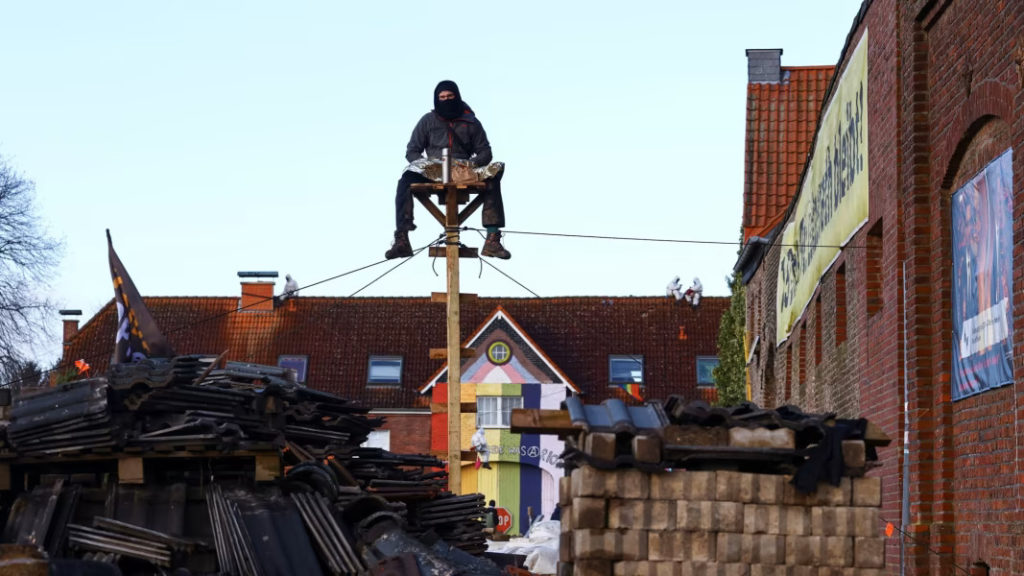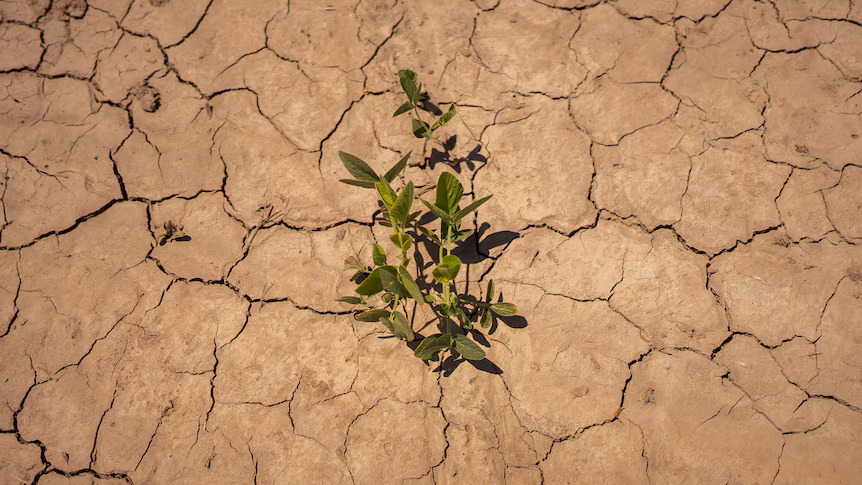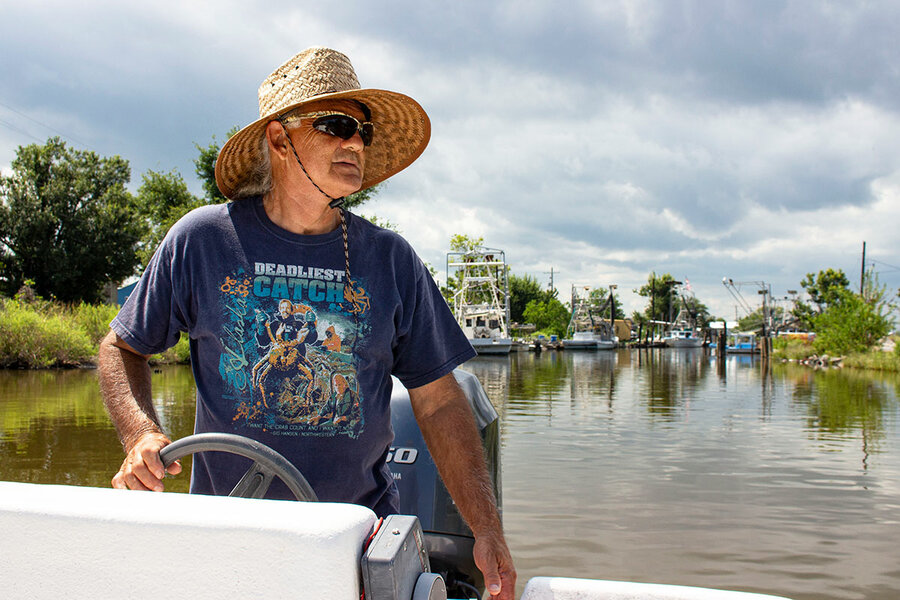Original publication by Laura Pitel for ft.com on 11 January 2023
Hundreds of activists in Lützerath vow to prevent hamlet’s destruction to make way for lignite mine

© Christian Mang/Reuters
Shortly after sunrise on Wednesday, hundreds of police poured into a tiny German village that has become a flashpoint for environmental protesters — and a symbol of the contradictions in Berlin’s climate policy.
Tensions have been rising for weeks between authorities and campaigners over the fate of Lützerath, an empty hamlet in western Germany’s industrial Rhineland that has now been taken up by protesters.
The energy giant RWE plans to raze the settlement and dig up the polluting lignite coal that lies underneath. Hundreds of activists who have occupied the village have vowed to make that task as difficult as possible.
On Wednesday morning, police accused activists of throwing stones and Molotov cocktails as they began to remove protesters in what the local police chief has said could be one of the most challenging operations his force has conducted in years.
The stand-off captures the paradoxes of a ruling coalition in Berlin that promised to be the greenest government ever when it came to power 13 months ago, but has been forced to extend the life of coal-fired power stations after the country’s energy security was upended by Russian president Vladimir Putin’s invasion of Ukraine.
The prominent German climate activist Luisa Neubauer is among those who have urged the federal government to pause the eviction, calling on them to “check on what basis they are making these huge, far-reaching decisions”.
Lützi, as the village is affectionately known by the protesters, lies in a blustery part of Germany’s industrial Rhineland where wind turbines stand side by side with coal-fired power plants. A vast opencast mine, Garzweiler II, is adjacent to the village.

© Ronald Wittek/EPA-EFE/Shutterstock
Lützerath’s fate was sealed in October when the national and local governments struck a deal with RWE to accelerate the phaseout of coal in North Rhine-Westphalia, bringing it forward by eight years to 2030.
Five other villages that had been earmarked for destruction were saved. But RWE said that it needed the coal under Lützerath as part of an agreement to keep two lignite-fired power plants running longer than planned in order to compensate for the sudden loss of Russian gas after Gazprom slashed supplies to Europe.
German economy and energy minister Robert Habeck, a Green politician who found himself in the awkward position of defending the expansion of fossil fuel power generation, described the deal as a “milestone for climate action”. He claimed that the agreement minimises extraction, leaving about 280mn tonnes of lignite that would otherwise have been excavated in the ground.
Habeck, who has also set out plans to aggressively expand renewables in a bid to make Germany carbon neutral by 2045, said that extending the life of coal-fired power plants was “painful, but necessary in view of the gas shortage”.
But Claudia Kemfert, an energy expert at the German Institute for Economic Research who has studied the mining plans and their compatibility with Germany’s climate goals, said the government had struck “a bad deal” that unnecessarily gave into the demands of RWE. “It’s so outdated to destroy villages for coal.”
In recent months, the giant circular digger that gnaws night and day at the ochre-coloured earth has gradually been getting closer to Lützerath. The edge of the 200-metre-deep pit is now as little as 30 metres from the village.
Once a village of roughly 100 inhabitants, Lützerath gradually emptied out years ago. The abandoned brick houses and barns are now occupied by climate campaigners, who have daubed the walls with anti-capitalist slogans and murals.

© Laura Pitel/FT
In the lead-up to the eviction, the mood was serious and anxious. “We’re not doing this for fun,” a 20-year-old nurse told the Financial Times on Monday. She had taken time off work to attend her first big environmental protest. “We are doing it because it affects us, and the future of our kids, so much.”
Activists argued that their protests were as much about the rest of the world as the village itself. “Every single additional tonne of coal mined in the Rhineland will cause more suffering and [will] fuel crises all over the world,” said Pauline Brünger, another high-profile climate campaigner. “Especially in countries of the global south.”
The eviction, which is headline news in Germany, will be uncomfortable for RWE, a former fossil fuel giant that has sought to rebrand itself as a leading global provider of renewable energy.
It is also profoundly difficult for the Green party, whose ministers in both the federal and local governments played a key role in brokering the deal that doomed Lützerath. “I have been shouted at quite a lot,” said German Green MEP Michael Bloss, speaking by phone on a visit to Lützerath on Tuesday. “They are angry and I can understand them.”
In recent days, activists have used bricks and branches to construct barricades. While some planned to resist passively, others intended to superglue themselves to structures or suspend themselves from tall wooden tripods aimed at making it difficult to remove them.
Lakshmi Thevasagayam, a spokesperson for the campaign group Lützerath Lives, rejected the notion that the protesters were just delaying the inevitable — and risking the safety of themselves and police — by attempting to prolong the eviction.
Their aim, she said, was to capture German public opinion and repeat the success of a similar campaign against RWE in the nearby Hambach Forest in 2018. The forest was to be cleared to allow for the expansion of a lignite mine, but was given a reprieve after a massive campaign by environmentalists. “Still a lot of people haven’t heard of this place,” said Thevasagayam. “As the eviction goes on, people will think: what the hell are they doing?”




